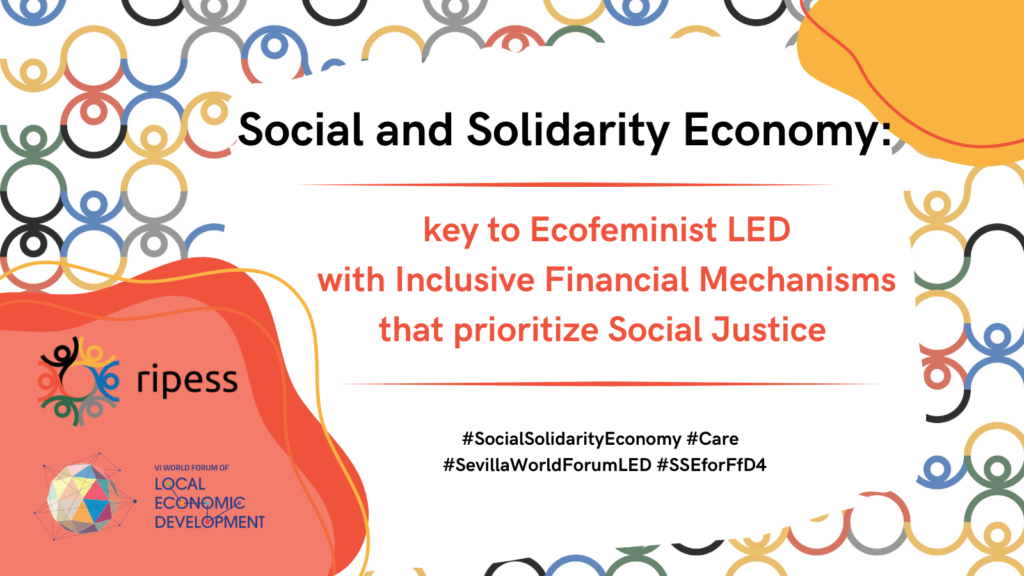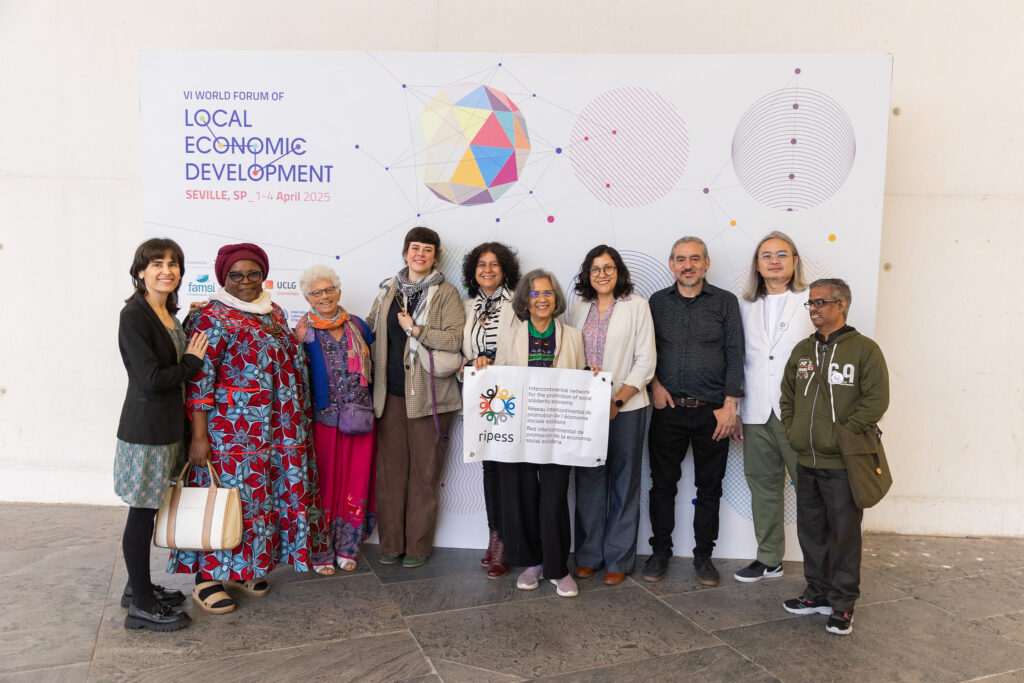
RIPESS was in Seville in the first week of April, actively participating in the 6th World Forum on Local Economic Development (WFLED) and visiting various local community experiences. The delegation special was made up of 18 representatives, including members and allies, from Africa, Asia, Europe and Latin America, who contributed their knowledge and initiatives from different areas of work, including activism, grassroots organisations, international organisations, academia and public institutions.
With a committed vision and action, it co-led 12 sessions at the forum, contributing the perspective of the Social and Solidarity Economy (SSE), key to promoting an ecofeminist, intersectional and human rights-based local economic development. In addition, it promoted inclusive financial mechanisms that prioritise social justice.
RIPESS was part of the extended executive committee and, together with other organisations, contributed to the dynamism and configuration of the forum. We are grateful for this novel collaboration, especially to FAMSI, the event organiser, for their work and for creating spaces for exchange between institutions and civil society. The sessions fostered enriching debates on transformative policies and initiatives driven by communities that are advancing towards social, economic and environmental justice.
International recognition of the SSE: progress and legislation
Since 2011, we have witnessed significant progress in the mainstreaming of the SSE. The creation of the United Nations Inter-Agency Task Force on SSE (UNTFSSE) in 2013 marked a key milestone in this process. Thanks to this momentum, more than 20 countries have adopted SSE legislation, and recently, UN member states have recognised its importance through various resolutions at the ILO and the UN. In April 2023, the UN General Assembly adopted Resolution A/RES/77/281, officially recognising the SSE as a fundamental tool for achieving the Sustainable Development Goals (SDGs). This resolution underlines the contribution of the SSE to employment, social cohesion and sustainability, encouraging its integration into national and local policies.
RIPESS’ key role in promoting care
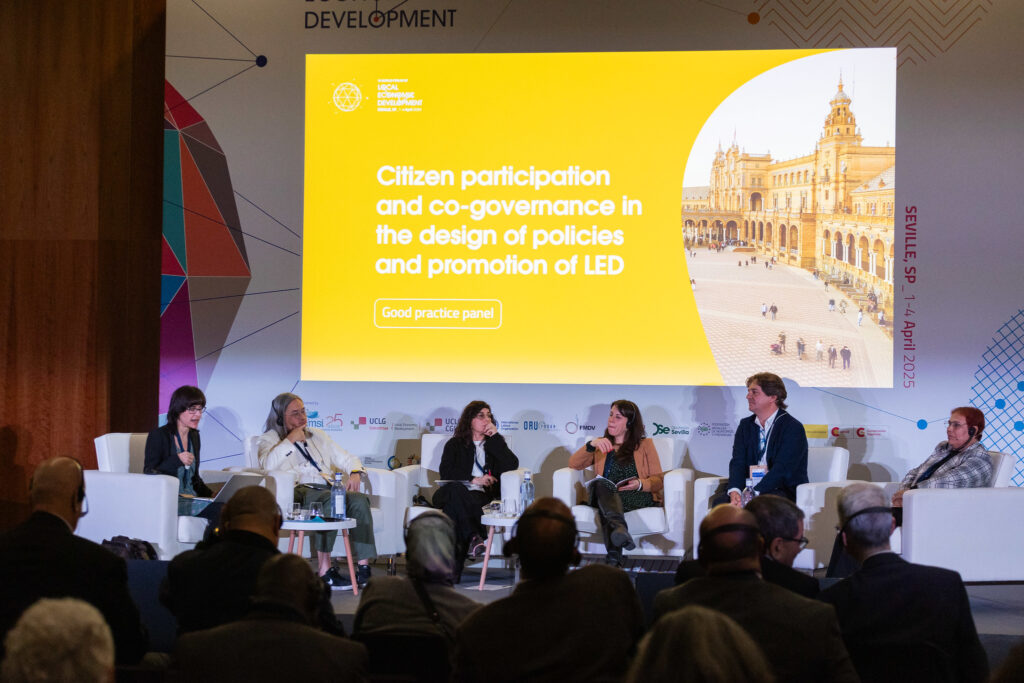
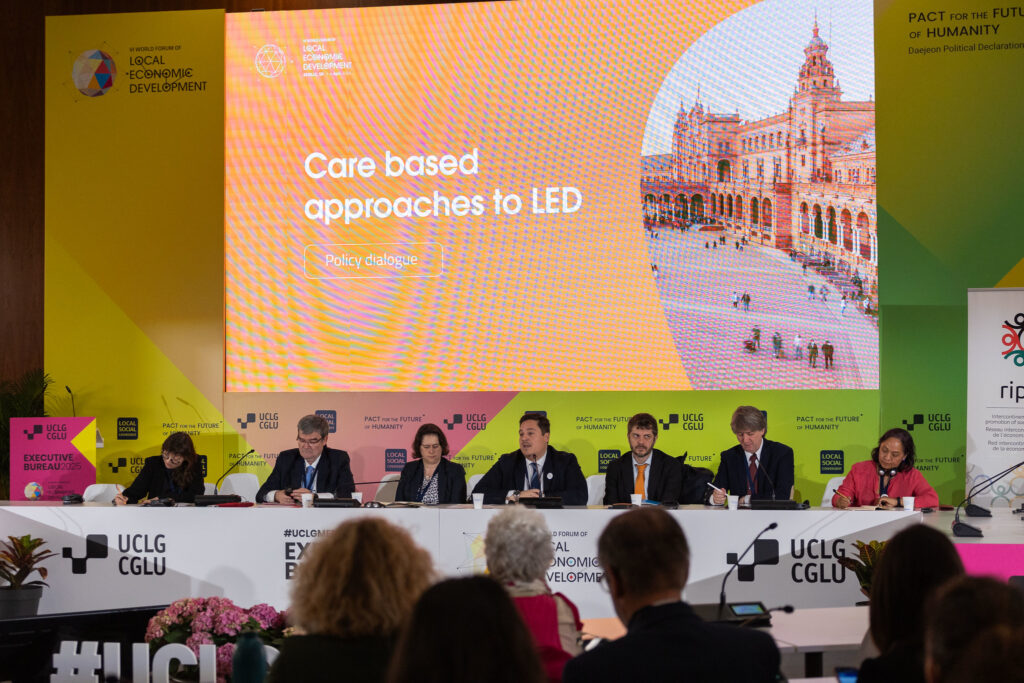
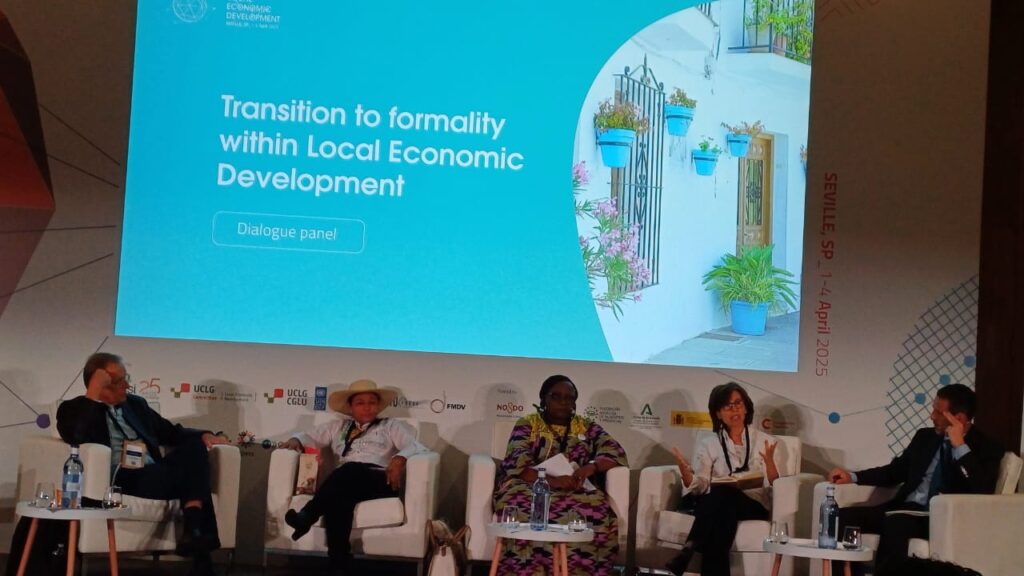
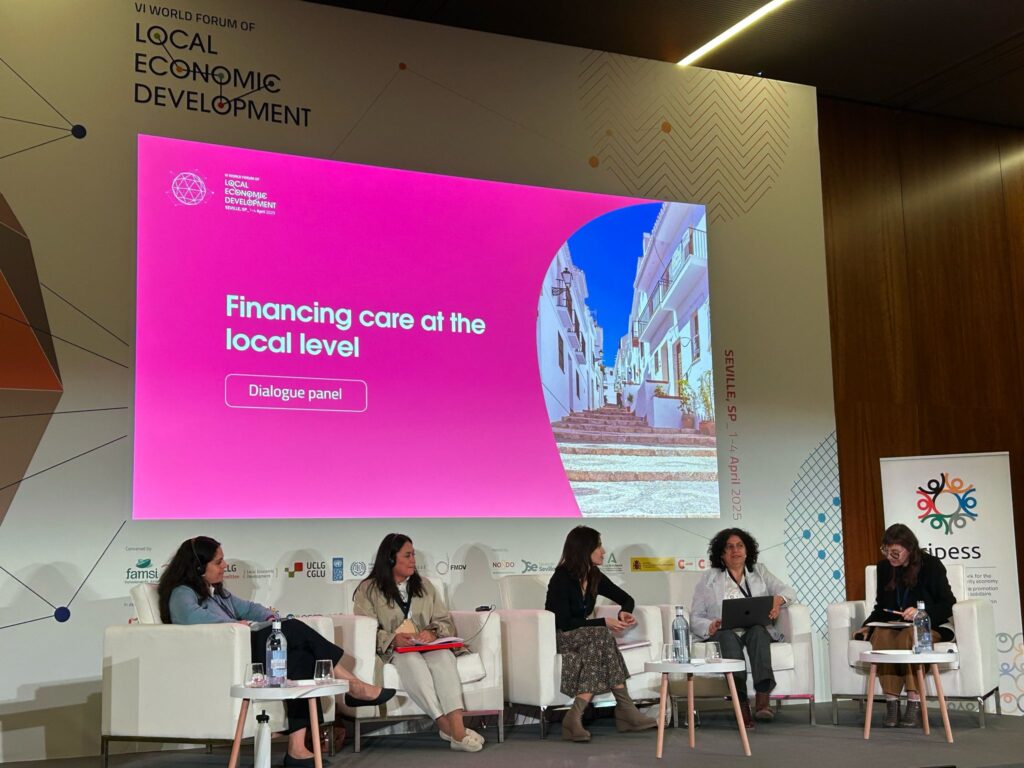
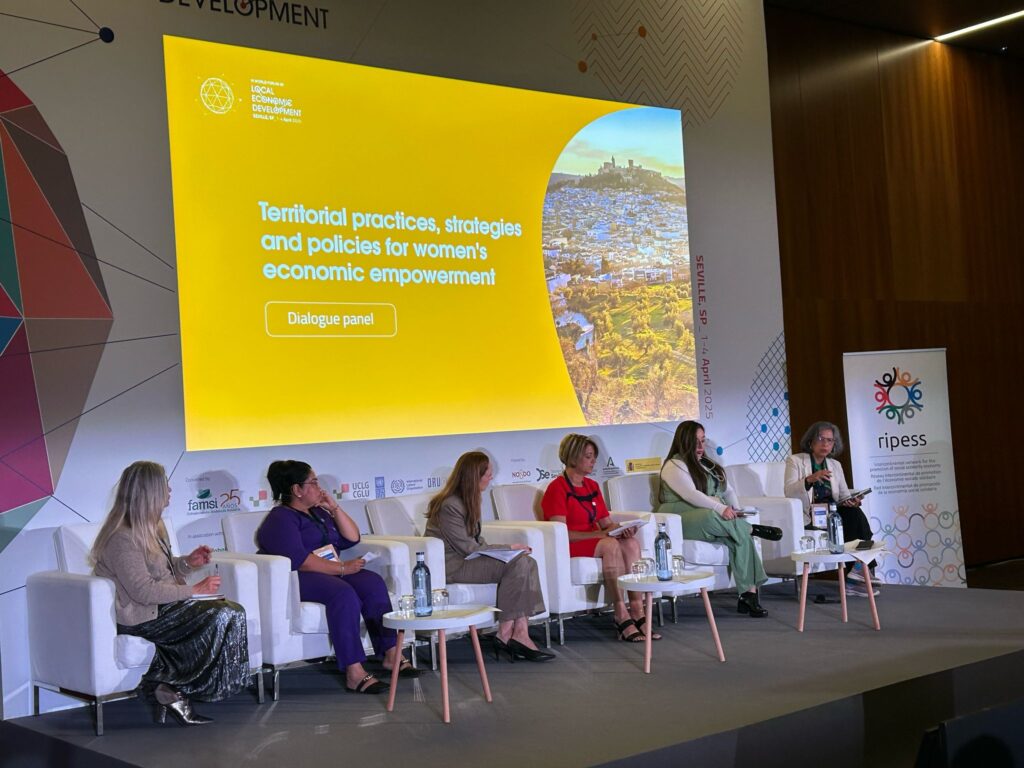
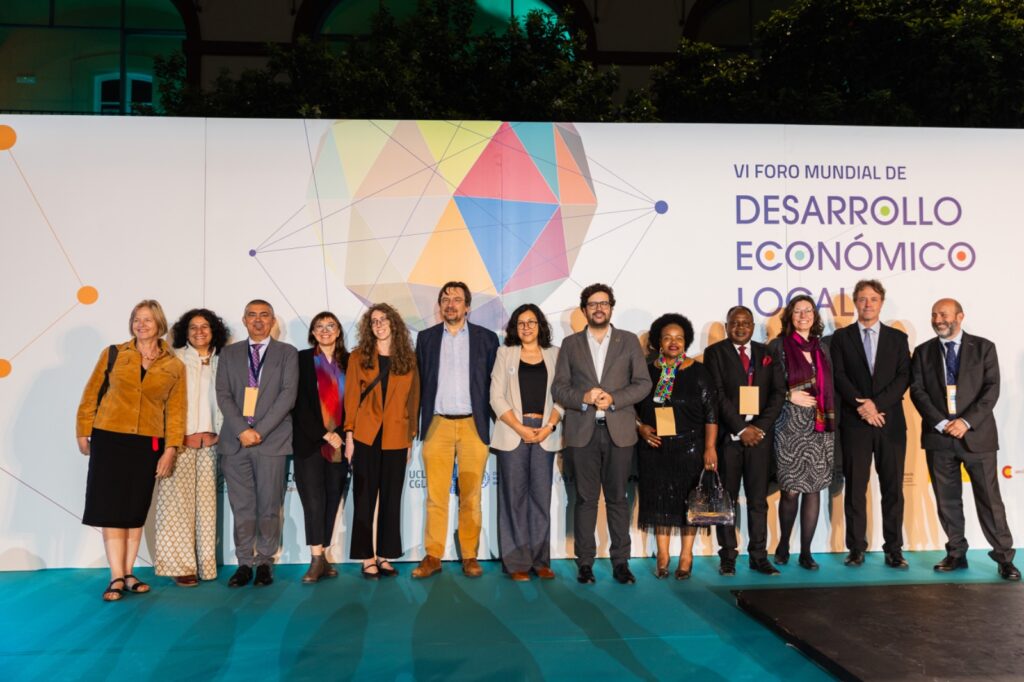
Before and during the forum, RIPESS played a prominent role, leading the local caring economies axis, addressing instruments, policies, infrastructures, services and people for territorial cohesion and balance. Some of the central points addressed were:
– Strengthening community initiatives focused on the SSE and the care economy, promoting inclusive and citizen-centred Local Economic Development (LED).
– The recognition of the crucial role of women entrepreneurs, highlighting the need for institutional support to guarantee the sustainability of their contributions.
– The importance of territorial policies and multi-level alliances to boost sustainable agricultural economies, improve livelihoods and guarantee food security.
– The integration of the gender approach in the SSE, as a tool for emancipation and social justice for women and girls.
– The relevance of strategic alliances at local, national and international level to strengthen support for women and young people in the SSE.
– The promotion of ethical public procurement, with direct effects on social justice and equitable development of the territories.
– The promotion of food sovereignty, guaranteeing sustainable production systems and strengthening local markets.
– The co-creation, co-management and co-implementation of public policies between the different spheres of government and civil society organisations.
– The contribution of the SSE to the transition from the informal economy to the formal sector, offering tools for economic empowerment and the realisation of human rights.
Forum declaration promotes the social and solidarity economy
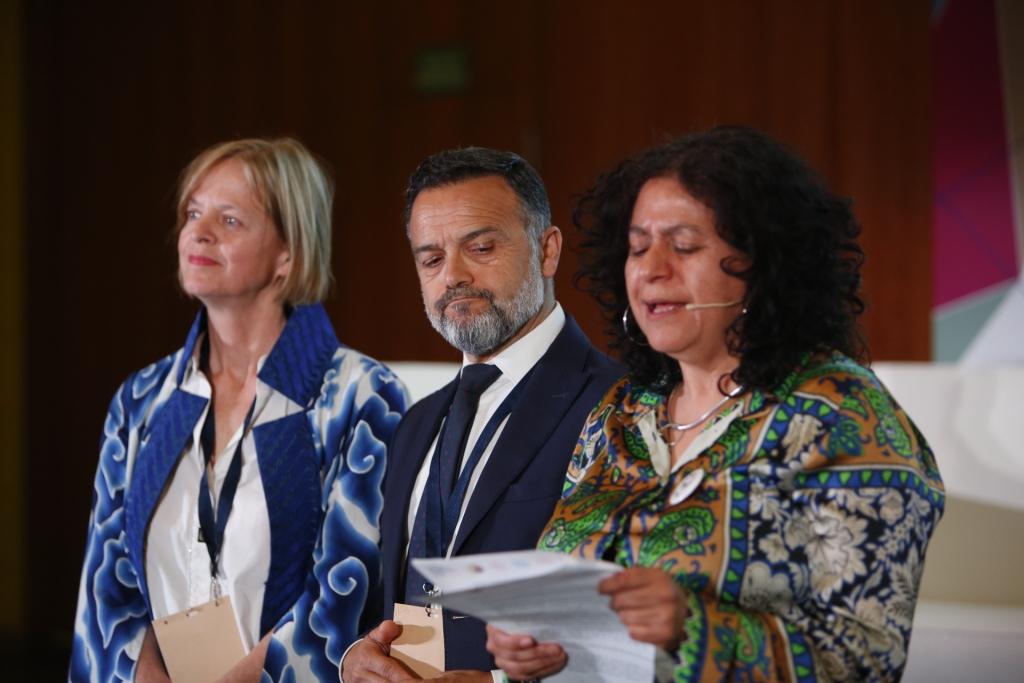
RIPESS welcomes the forum declaration, read by our Secretary General, Sandra Moreno, at the closing ceremony. This document emphasises the need to address the multiple current crises through social and civil dialogue, highlights the importance of ensuring the inclusion of all actors in decision-making, promoting social justice and gender equality from an intersectional perspective, and fostering a just and sustainable triple transition through the social and solidarity economy and the care economy.
However, we identify the need to include the human rights approach, as well as the strengthening of women’s strategic interests to guarantee their full participation in the management of the territory’s resources.
Next steps: towards the Fourth International Conference on Financing for Development
We continue to move forward in this process. Our next stop will be the Fourth International Conference on Financing for Development (FfD4), a unique opportunity to reform financing at all levels. Ripess will actively participate in this space with the aim of influencing the final declaration and integrating the SSE and its principles into global strategies.
